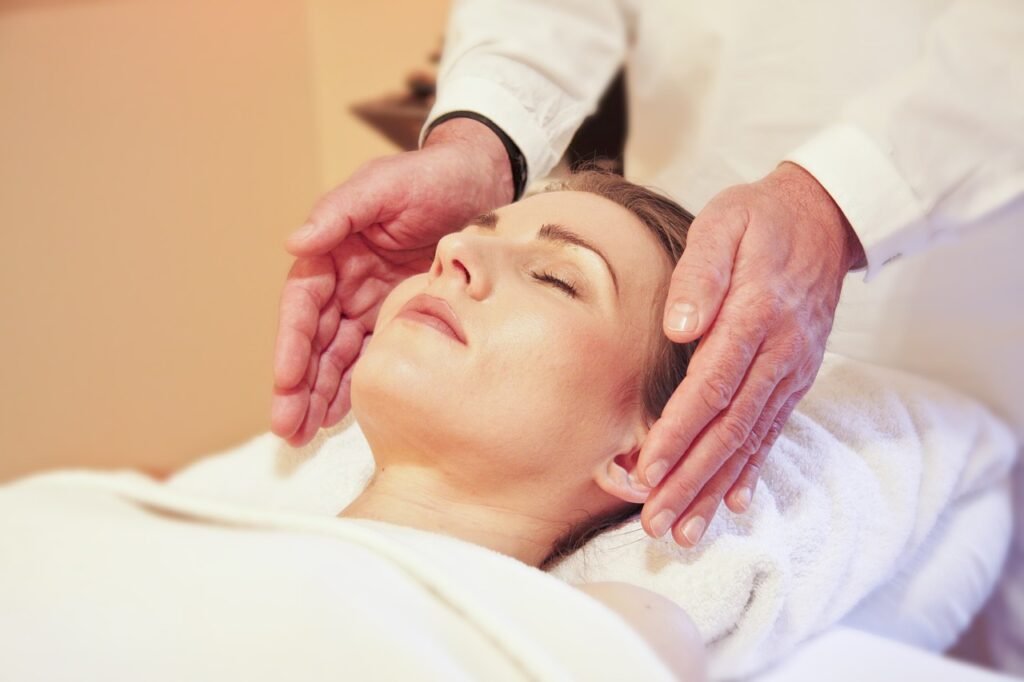
- Intro
- Understanding Holistic Medicine: The Basics
- The Role of a Holistic Doctor Explained
- A Closer Look at Holistic Treatments and Therapies
- How Holistic Doctors Approach Common Health Issues
- The Benefits of Choosing a Holistic Doctor
- Finding the Right Holistic Doctor for You
- Preparing for Your First Visit to a Holistic Doctor
Intro
Have you ever wondered, “What do holistic doctors do?” Holistic medicine is a unique approach to healthcare that focuses on treating the whole person, rather than just symptoms.
In this comprehensive guide, we will explore the role of holistic doctors, the treatments and therapies they offer, how they approach common health issues. We’ll also cover the benefits of choosing a holistic doctor, how to find the right holistic doctor for you, and what to expect during your first visit.
Understanding Holistic Medicine: The Basics
Holistic medicine embodies a healing philosophy that considers the entire individual—incorporating the physical body, the mind, the spirit, and the emotions—in seeking overall health and well-being.
This approach fundamentally differs from conventional medicine by not just focusing on alleviating symptoms but striving to find and treat the root causes of illness.
Holistic practitioners evaluate various aspects of an individual’s life, including their nutrition, activity level, and emotional health, to develop a comprehensive treatment plan. The goal is to restore balance within the body and prevent future health issues by promoting a healthier lifestyle.
By prioritizing a patient’s comprehensive well-being, holistic medicine encourages individuals to take an active role in their health. This involves making conscious choices about diet, exercise, and stress management, and exploring a broader spectrum of treatments beyond pharmaceuticals.
Holistic doctors often integrate traditional medical practices with alternative therapies, ensuring a multidimensional approach to healing. This can include the use of natural remedies, such as herbs and supplements, along with practices like yoga, meditation, and acupuncture, to support the body’s intrinsic healing capabilities.
The essence of holistic medicine is the belief that each person is unique and therefore requires a tailored approach to health care. This personalized strategy allows for more nuanced and effective interventions, designed to not only address current health issues but also to foster an enduring state of wellness.
Holistic medicine’s inclusive and preventive nature makes it an appealing choice for those seeking to maintain or improve their health through a more attuned connection between the body and mind.
The Role of a Holistic Doctor Explained
Holistic doctors, embodying the role of both a healer and a guide, play a crucial part in the realm of holistic medicine. Their work transcends the conventional duties of a physician, diving deeper into the intricacies of individual patient care.
Unlike traditional medical practitioners who may focus primarily on symptom management, holistic doctors embark on a journey with their patients to uncover the multi-layered causes of ailments. They engage in detailed conversations with patients, dedicating time to understand the entirety of a person’s health concerns, lifestyle, and personal health objectives.
In their practice, holistic doctors employ a synergistic approach that marries the best of conventional medical practices with alternative and complementary therapies. This could mean integrating modern diagnostic techniques with ancient healing practices or combining pharmaceutical treatments with nutritional counseling and lifestyle modifications.
Their expansive toolkit allows for the creation of customized treatment plans that cater to the unique physiological and psychological needs of each patient.
A significant part of a holistic doctor’s role also involves education and empowerment. They are fervent advocates for patient education, aiming to equip individuals with the knowledge and tools necessary to take charge of their health.
This educational approach ensures patients are well-informed about their health conditions and the rationale behind each recommended treatment or therapy. Moreover, holistic doctors encourage patients to actively participate in their healing processes. Therefore fostering a collaborative doctor-patient relationship that is foundational to the holistic care model.
At its core, the role of a holistic doctor is defined by a commitment to holistic wellness, which includes a balance of physical, emotional, mental, and sometimes spiritual health.
By focusing on prevention and employing a broad array of therapeutic practices, holistic doctors work towards not just the absence of disease, but the presence of optimal health in their patients.
A Closer Look at Holistic Treatments and Therapies
Delving into the world of holistic treatments and therapies reveals a broad spectrum of healing modalities, each with its unique contribution to overall wellness.
Beyond the conventional methods of treatment, holistic doctors tap into the power of alternative practices designed to harmonize the body, mind, and spirit.
Acupuncture
Acupuncture stands out for its ability to stimulate the body’s natural healing processes through the insertion of fine needles into specific points on the body. This ancient practice is renowned for its effectiveness in reducing pain, enhancing relaxation, and improving various health conditions.
Chiropractic Care
Chiropractic care is another pillar of holistic therapy. This focuses on the diagnosis, treatment, and prevention of mechanical disorders of the musculoskeletal system, particularly the spine. By adjusting the body’s alignment, chiropractors can alleviate pain, improve function, and support the body’s natural ability to heal itself.
Massage Therapy
Massage therapy offers therapeutic benefits that extend beyond mere relaxation. Through various techniques, massage therapists work to relieve muscle tension, improve circulation, and promote a sense of well-being. This hands-on approach is particularly beneficial for those dealing with stress, chronic pain, or muscle injuries.
Nutritional Counseling
Nutritional counseling and herbal medicine are key components of holistic nutrition, emphasizing the importance of a balanced diet and natural supplements in maintaining health. Holistic doctors provide personalized dietary advice, incorporating whole foods and natural remedies to support healing and prevent disease.
Mindfulness Practices
Mindfulness practices, including meditation and yoga, are also integral to holistic therapy. These practices encourage a state of present awareness and relaxation, aiding in stress reduction and emotional balance.
By incorporating these diverse therapies, holistic doctors offer a comprehensive approach to health, addressing not just physical ailments, but also fostering mental and emotional wellness.
Path to Serenity: The Top 5 Best Mindfulness Books
How Holistic Doctors Approach Common Health Issues
In tackling common health issues, holistic doctors adopt a multifaceted strategy that goes beyond mere symptom suppression.
They prioritize understanding the patient’s overall lifestyle, emotional state, and environmental factors that may contribute to their condition. This comprehensive evaluation helps in pinpointing the root causes of ailments, be it chronic pain, digestive problems, or emotional distress.
Holistic doctors might employ an array of diagnostic tools, including conventional tests and alternative evaluation methods, to gather a complete picture of the patient’s health. Based on their findings, they devise personalized treatment plans that can include a blend of dietary adjustments, herbal supplements, physical therapies, and stress-reduction techniques. For instance, a patient suffering from chronic pain may benefit from acupuncture and chiropractic care to alleviate discomfort, coupled with nutritional counseling to address any dietary triggers.
Top 5 Must-Read Books on Holistic Nutrition
For emotional and mental health issues, such as stress and anxiety, holistic practitioners often recommend practices aimed at achieving mental and emotional balance. These include mindfulness meditation, yoga, or counseling. The objective is to not only treat the symptoms but also empower the patient to lead a balanced lifestyle that supports their overall well-being.
The integration of conventional medical treatments with alternative therapies allows holistic doctors to offer a broad spectrum of options tailored to the individual’s needs. This patient-centered approach ensures that all facets of the person’s health are addressed.
Through this thorough and empathetic methodology, holistic doctors aim to restore harmony to the body and mind, enabling patients to achieve a higher quality of life.
The Benefits of Choosing a Holistic Doctor
Opting for a holistic doctor presents several unique advantages, key among them being the tailored approach to healthcare. These practitioners delve into the intricate layers of a person’s lifestyle, emotional wellbeing, and physical health to devise care plans that transcend mere symptom treatment.
This comprehensive method fosters a deeper understanding of the patient’s condition, paving the way for more effective and sustainable health outcomes. One of the distinct benefits of holistic care is its emphasis on preventive measures.
By focusing on the root causes of health issues, holistic doctors aim to avert the development of chronic diseases, thereby reducing the need for invasive treatments or heavy reliance on medication in the future.
Holistic medicine also champions the use of natural and less invasive therapies. These are generally accompanied by fewer side effects compared to traditional medical treatments. This aspect is particularly appealing for individuals seeking alternatives to conventional pharmaceuticals and surgical interventions.
Moreover, the holistic approach encourages a partnership between the doctor and patient. This collaborative dynamic ensures that patients are actively involved in their healing process, equipped with the knowledge and resources to make informed decisions about their health.
In addition, the holistic model’s emphasis on mental and emotional health as integral components of overall wellness offers a more balanced approach to healthcare. This acknowledges the significant impact of stress, anxiety, and emotional imbalances on physical health, and provides strategies for managing these aspects effectively.
Holistic doctors, with their broad toolkit of therapies including nutritional counseling, stress-reduction techniques, and alternative treatments, are well-positioned to guide patients towards a holistic state of health. This state encompasses not just the absence of illness, but the vibrant presence of overall wellbeing.
Finding the Right Holistic Doctor for You
Embarking on the journey to select a holistic doctor that meets your individual health needs requires thoughtful consideration and research. Begin by examining the credentials and professional background of potential doctors to ensure they possess the necessary qualifications and expertise in holistic medicine.
It’s beneficial to look into their areas of specialization to see if they align with your specific health concerns and wellness goals. Experience matters as well; consider how long they have been practicing and their track record in treating conditions similar to yours.
Another critical aspect to consider is the holistic doctor’s approach to treatment. Holistic medicine encompasses a wide range of therapies and philosophies, so it’s essential to find a practitioner whose methods resonate with you. Some doctors might focus more on nutritional counseling and herbal medicine, while others may prioritize acupuncture, mindfulness, or chiropractic adjustments. Reviewing the range of treatments offered can provide insight into whether their approach suits your preferences and needs.
Patient testimonials and reviews can be invaluable resources, offering firsthand accounts of their experiences with the doctor. These insights can shed light on the doctor’s ability to create a comfortable and supportive environment, their effectiveness in addressing various health issues, and their commitment to patient-centered care.
Lastly, don’t underestimate the importance of a personal connection. Scheduling an initial consultation can give you a sense of the doctor’s personality, communication style, and philosophy towards patient care. This meeting is a chance to ask questions, discuss your health concerns, and gauge whether you feel comfortable and understood. A strong doctor-patient relationship is foundational in holistic medicine, as it fosters open dialogue and collaboration towards achieving your health and wellness objectives.
Preparing for Your First Visit to a Holistic Doctor
When gearing up for your initial appointment with a holistic doctor, thorough preparation can significantly enhance the effectiveness of your consultation. Start by collecting any pertinent medical documents, such as previous test results, a list of medications or supplements you’re currently using, and a history of treatments you’ve undergone. These records will provide your holistic doctor with a clear view of your past healthcare experiences. It will also aid in the creation of a more accurate and personalized health plan.
Additionally, it’s beneficial to reflect on your primary health concerns and objectives. Consider what you hope to achieve through holistic treatment—be it relief from a specific ailment, general wellness improvements, or guidance on a healthier lifestyle. Crafting a list of these aims, alongside any symptoms or health issues you’re experiencing, will ensure you cover all important bases during your discussion.
Equally important is noting down any queries you might have. This could range from questions about the holistic treatment process, what types of therapies might be considered, to how lifestyle changes could be integrated into your treatment plan. Being armed with questions not only shows your engagement and readiness to participate actively in your health journey but also helps in clarifying any uncertainties. This will allow you to make the most informed decisions about your care.
Remember, this initial visit is an opportunity to establish a rapport with your holistic doctor. Be honest and open in sharing your health history and wellness goals. This transparency is crucial for your holistic doctor to tailor a treatment approach that aligns with your individual needs, setting the stage for a collaborative and effective healing journey.
Pin this post to read later



